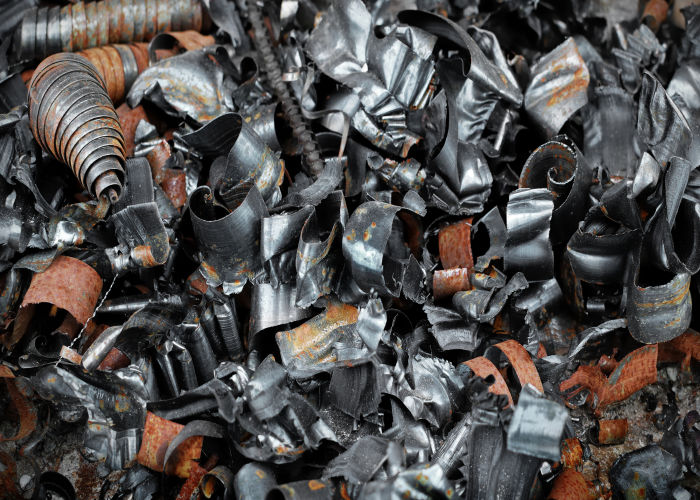India is one of the world’s largest consumers of lead, with a wide range of applications in industries like battery manufacturing, pigments, ammunition, and construction materials. As the demand for lead products continues to grow, so does the generation of lead scrap. This scrap lead for sale presents a valuable opportunity for recycling, which can significantly reduce the environmental impact of lead production and contribute to a greener future for India.
What is Lead Scrap?
Lead scrap refers to any unwanted or discarded items containing lead. Common sources of lead scrap include:
- Used batteries: Lead-acid batteries are a major source of lead scrap in India. These batteries are used in cars, motorcycles, and other vehicles. Once they reach the end of their lifespan, they can be recycled to recover the lead for use in new products.
- Lead pipes and sheets: Lead was once a common material used in plumbing and roofing. However, due to health concerns, lead is no longer used in these applications. Existing lead pipes and sheets can be recycled to prevent lead from contaminating the environment.
- Ammunition: Lead is a key component of bullets and other types of ammunition. Spent ammunition casings can be collected and recycled to recover the lead.
- Industrial scrap: Lead is used in a variety of industrial processes, and scrap lead can be generated from these activities. For instance, lead-based paints and coatings can be chipped or peeled off surfaces during renovations, creating lead scrap that requires proper recycling.
The Importance of Lead Scrap Recycling
Lead recycling offers several significant benefits for India:
- Environmental Protection: Lead is a toxic metal that can cause serious health problems if exposure occurs. Recycling lead scrap helps to divert this material from landfills and reduces the risk of lead contamination in soil and water. According to the American Chemistry Council, lead recycling reduces lead air emissions by 60% and waterborne discharges by 90% compared to primary lead production.
- Resource Conservation: Lead is a finite resource, and recycling helps to conserve this valuable material. Extracting lead from virgin ore requires significant energy and can hurt the environment. By recycling lead scrap, we can reduce our reliance on primary lead production.
- Economic Benefits: Lead scrap is a valuable commodity that can be bought and sold. A well-established lead scrap recycling industry can create jobs and boost the Indian economy. Lead scrap processors can generate revenue by selling the recovered lead to manufacturers of new lead products.
The Lead Scrap Recycling Process
Lead scrap recycling is a complex process that involves several steps:
- Collection: Lead scrap is collected from various sources, such as battery recycling facilities, construction sites, and shooting ranges.
- Sorting and Segregation: The collected scrap is sorted and segregated based on its lead content and composition.
- Processing: The lead scrap is then processed using various techniques, such as crushing, grinding, and smelting. During smelting, the lead is separated from other materials and melted into a pure form.
- Refinery: The molten lead may undergo further refining to remove impurities and meet the specifications required for different applications.
- Manufacturing: The recycled lead is then used to manufacture new lead products, such as batteries, pipes, and ammunition.
Challenges of Lead Scrap Recycling
Despite its benefits, lead scrap recycling also faces some challenges:
- Informal Recycling: A significant portion of lead scrap recycling in India occurs in the informal sector. Informal recycling operations often lack proper safety measures and can contribute to environmental pollution.
- Public Perception: Lead is a toxic metal, and there is a public perception that lead scrap recycling is dangerous. Educational campaigns are needed to raise awareness of the safety measures in place at modern lead scrap recycling facilities.
- Logistics: Collecting and transporting lead scrap can be challenging due to logistical issues and regulatory requirements.
The Future of Lead Scrap Recycling in India
The future of lead scrap recycling in India is bright. The government is increasingly recognizing the importance of recycling for environmental protection and resource conservation. Several initiatives are underway to promote lead scrap recycling in India, including:
- Developing guidelines and regulations: The government is developing guidelines and regulations to ensure the safe and environmentally sound recycling of lead scrap.
- Promoting formal recycling: The government is promoting the development of a formal lead scrap recycling sector in India.
As the demand for lead products continues to rise, the generation of lead scrap is also increasing. This presents a significant opportunity for recycling, which can help conserve natural resources, reduce pollution, and create a more sustainable future. Lead scrap suppliers play a crucial role in this process by collecting and processing lead scrap, ensuring that it is recycled responsibly. By supporting lead scrap recycling initiatives, we can contribute to a greener and healthier planet for future generations.
 :
https://in.pinterest.com/cmrgreentechnologies/
:
https://in.pinterest.com/cmrgreentechnologies/












